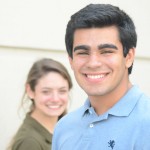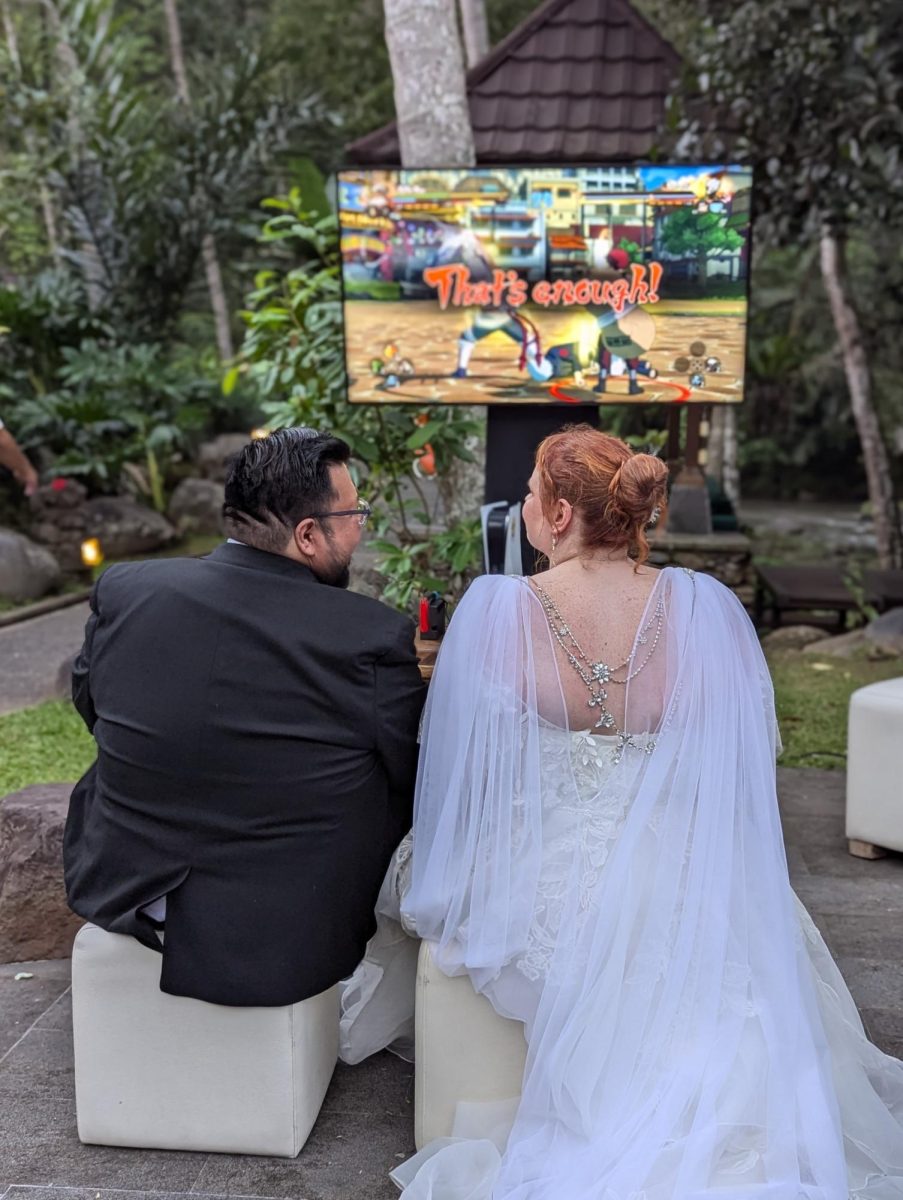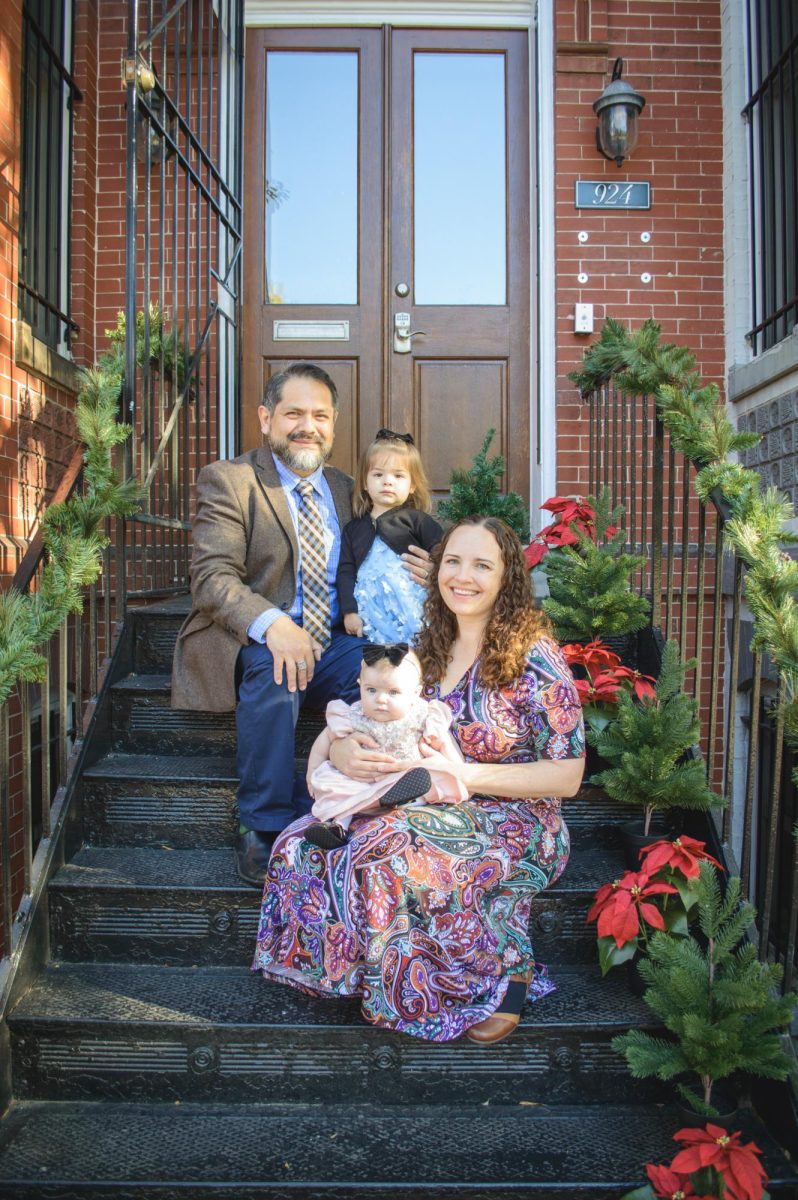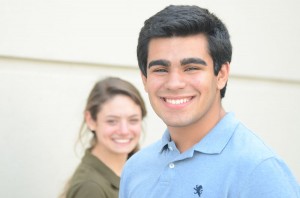Students in this article are quoted anonymously by request of the administration.
The last few decades have produced some dramatic changes in the national discourse about all things pertaining to tolerance.
Whether the issue is gender, race, ethnicity or simply differing views on a certain topic, tolerance is essential to preserving individuality.
There are many different kinds of people that make up this school’s student body, and with tolerance they are able to accept different beliefs.
Without tolerance, societies implode. Tolerance fosters peace. On campus, tolerance is not only essential to maintain peace, but to the educational mission.
Students benefit from one another; they work together on projects, teams, and exchange knowledge in the classroom. If they don’t tolerate each other, how can they move forward with group assignments?
One of the school’s greatest values is that of the “Trinity Family.” The term refers to everyone involved with the school – all students, teachers, faculty, staff, and administration.
Together they create a community that values tradition and respects the dignity of each member. “One of the principal values of our school is that we promote respect for all individuals,” said Assistant Headmaster and Upper School Principal Dennis Herron.
As an independent school that follows the beliefs of the Episcopal Church, Trinity Prep does indeed accept differences among students.
The School’s Notice of Nondiscriminatory Policy reads,
“Trinity Preparatory School admits students of any race, color, national and ethnic origin to all the rights, privileges, programs, and activities generally accorded or made available to students at the school. It does not discriminate on the basis of race, color, national and ethnic origin in administration of its educational policies, admissions policies, scholarship and loan programs, and athletic and other school-administered programs.”
The school has many students of different races and ethnicities. “Being an African American at a very dominant white school may be daunting to some at first, but never have I felt that I was treated differently,” a black junior male said. “I honestly never even think about it; I just show up to school and know I’m equal to everyone.”
While the administration and faculty may encourage tolerance, not all students practice what they are taught. Whether it is racial prejudices or simply differing views, the lack of tolerance shown on our campus is due to some students’ lack of acceptance of others’ views.
Some, but not all, students on campus use stereotypes.
Gender stereotyping is often subjected towards females who play sports. “Being a girl who plays two sports that are regarded as ‘manly,’ I hear a lot of stereotypes thrown around,” a female athlete said. Although these stereotypes may be funny to the person making such remarks, they definitely have a different effect on the person or people being targeted.
“When we play other teams, I sometimes hear rude remarks from the opponents’ fans,” she said. “But at Trinity games, I don’t ever hear any negative remarks passed. I think if someone takes their time to come out to one of our softball games, they’re not going to sit there and bash us; they’re there to support us. Where I do hear stereotypes is on campus. They’re not said that much, but they do come out – especially in arguments.”
In the heat of the moment, people tend to make irrelevant remarks to sting the adversary.
Although the school resides under the Episcopal Church, there are many different religions represented on campus.
Religious intolerance is present among students despite the open arms of the adults on campus. “I find it obnoxious when other students accuse me of being immoral because I don’t believe in Jesus Christ,” an atheist senior male said. “However, even though we are forced to sit through chapel every Thursday, I never feel like the school is putting their religion on me.”
Sometimes students pass hateful comments when they are intended to be jokes; it’s the intention the joker has behind what they say.
The true “intentions” of many came to the surface during the recent presidential campaign. Not much political intolerance is seen on campus, but through websites such as Facebook and Twitter, students show their true colors.
“When the Democratic National Convention was on air, I saw some very undermining statuses being posted on Facebook,” a Democratic male said. “I saw a student post statuses that said ‘laughing at the Democratic National Convention,’ or even ‘Mitt the polygamist.’ These comments instigated arguments in which students of the opposite party posted even ruder comments. I found it unnecessary. If someone is going to insult the other party, it should be done with intelligent, factual information.”
Dean of Students and sponsor of the Libertarian Club William Milsten set a good example for political tolerance. “History Teacher Samuel Stuart and I have opposite political views, but we’re still friends; he’s the guy I sit with at the football games,” he said.
Although online posts can’t be monitored or controlled on campus, they are a reflection of the author’s character. “Anyone involved with our school should strive for a high moral fiber, good character, and excellence with everything we do,” said Herron.
The school is indeed tolerant, but sometimes little injustices or instances of intolerance slide by.
Money may talk, but people don’t like talking about money. Costing around $17,500 a school year, the school does indeed attract wealthy families, but not all students fall into that category. Many students on campus receive financial aid or come from middle-class families who strongly value their children’s education.
From a socioeconomic standpoint, not all students realize that not every student on campus is equally fortunate, which leads to some students feeling uncomfortable or embarrassed. Although most instances are not intentional, an impact is made.
“I receive a scholarship to attend this school, but I think it’s important to know your place economically. If you have money to spend, then sure, do it. Just don’t flaunt it,” said a student who receives financial aid. “If you don’t, never feel uncomfortable when your friends are talking about doing something that you know you can’t. It’s the reality of things, and it can’t change, so it’s important to not let something so trivial impact you greatly.”
Other stereotypes seen on campus come through sexuality.
The theatre is a place where a lot of damaging stereotypes occur. “Students who do musical theatre are some of the most athletic people around,” said Theatre Director Donna Walker. “These actors usually take intensive dance classes; they are expected to do difficult dance numbers while singing their lungs out.”
A lot of stereotypes are seen in theatre because, “theatre is an art, art is expressive, and perhaps those who are artists simply express themselves more than others,” said Fine Arts Chair Janine Papin. “The arts community in general tends to be an open and supportive environment. Perhaps it is just a place where people can be more honest, and because of that, they can express who and what they are without fear of judgment.”
The stereotypes pertaining to the arts and theatre come from the association that some people make between homosexuality and people who do theatre and or are artistic. “These stereotypes are being reinforced by shows like Glee and Smash,” said Walker.
Referring to homosexuality, “ironically, [on campus] I have heard more stories about people being teased for ‘being gay’ when they actually are not, than gay students being harassed,” said Walker. “I try to maintain an awareness and tolerance in my classes.
An openly homosexual student promotes the tolerance seen on campus, “I have to say that I honestly do feel tremendously blessed being on this campus. This school is without a doubt a tolerant place. On any other campus I would probably have been beaten up. I walk around in bright yellow pants, suspenders, and a tie (and that’s casual me),” he said. “There are some people that aren’t necessarily as tolerant with the topic of homosexuality, but they keep their opinions to themselves. I may not agree with their opinion, but I still respect it. On campus, like everywhere, people can be a little mean, but find the people you love and they will help you get through anything.”
Teachers are just as susceptible to hearing gossip or stereotypes thrown around as students are. Our campus consists of small class sizes, allowing students to have strong bonds with teachers or any faculty member on campus.
“There is an adult for every student on campus that will gladly listen to any students’ issue,” said Herron.
In dealing with intolerance, the faculty and administration do have procedures they take for disciplinary action. “We’re not going to tolerate intolerance on campus;we take action the second we hear things. We give consequences to the students based on how serious the harassment was,” said Milsten. “If it’s minor we’ll pass it on to a coach or director. If it’s serious, we take serious action.”
On campus, respect and responsibility are what the school stands for, as stated in the Honor Code. There cannot be a harmonious environment with hatred and disrespect in the air. “We are geared towards having a healthy, general culture on campus,” said Herron. “Everyone is encouraged to grow and deepen their faith.”
The old saying, “You can’t judge a book by its cover” definitely reflects how students should approach different people, ideas, or anything society classifies as abnormal.
The school’s campus has, without doubt, a warm and welcoming atmosphere – it promotes equality among all its members.
“You are all beautiful, so be who you are. There are songs to be sung, art to be made, sports to be played, and people to be loved,” a student said.















